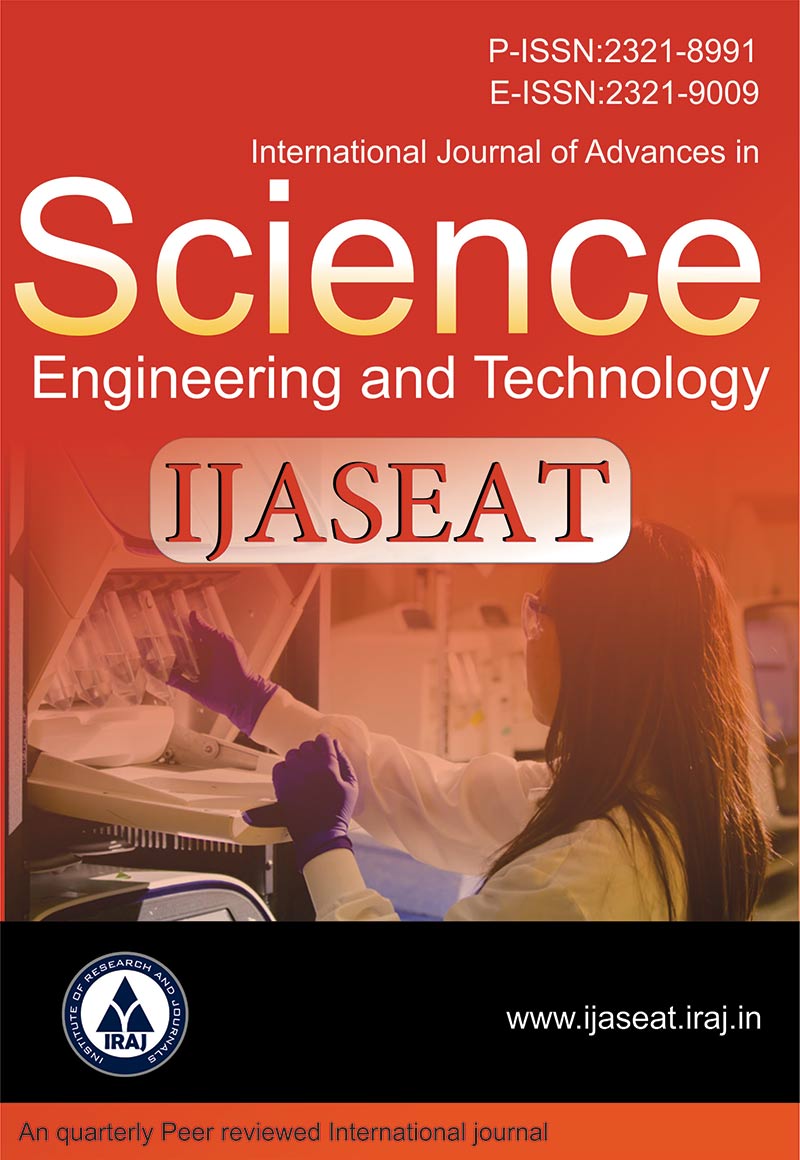Publish In |
International Journal of Advances in Science, Engineering and Technology(IJASEAT)-IJASEAT |
 Journal Home Volume Issue |
||||||||
Issue |
Volume-6, Issue-2, Spl. Iss-1 ( May, 2018 ) | |||||||||
Paper Title |
Stress and Coping Strategies Perceived by Undergraduate Medical Students | |||||||||
Author Name |
Vijayalecthmi Murugan, Foo Mun Xiew, Gunasegaran Shunmugam, Kevin Ooizi Kai, Skantha Rajahn Thirugnanam, Handattu Shyamala Hande | |||||||||
Affilition |
MBBS Graduates, Melaka-Manipal Medical College, Manipal Academy of Higher Education, Manipal-576104, Karnataka India Professor of Histology, Melaka-Manipal Medical College (Manipal Campus), Manipal Academy of Higher Education, Manipal-576104, Karnataka India | |||||||||
Pages |
102-106 | |||||||||
Abstract |
Stress is an unavoidable part of life. Contrary to popular belief, stress is not the pressure from outside such as peer pressure, too much work load, examinations, family, and the isolation. Those are stressors. One’s response to those situations constitutes stress. The positive aspect of stress is that the challenges caused by stress help to develop new skills and behavior patterns. The problems occur, however, when stress becomes excessive. It can become destructive and can turn into distress. Too much pressure on your mind and body can make you feel miserable, worried, sad or ill. It is usually observed that medical students undergo tremendous stress during various stages of the MBBS course 1,2,3. It is more so , when they are away from home and family. Informal realization about the several stressors in MBBS students, this survey was done by the investigators to explore how it affects medical students in particular. The study explored causes of stress among undergraduate students in an international campus, identified effects of stress and how students cope with stress and the various methods used by the students in stress management. Stress management implies the learning of effective coping strategies or ways to deal with the many sources of stress in modern life4. A prevalidated questionnaire with 15 questions were used for the study. 300 students who volunteered from three consecutive batches participated in the study. Statistical analysis of data was performed. Findings: 97% of the students experienced stress; the fresher batches experienced maximum stress. A majority of the students (85%) attributed their stress to “academic” factors such as class tests and University exams, while a small percentage felt the stress was due to peer pressure or demands from families to perform better. 70% of the students committed to the fact that they observed dietary changes, mood swings and sleeplessness when they are stressed. 26% of the students perceived the loss of will power and confidence during times of stress. Talking to friends and family, taking up their hobbies, yoga and meditation were some of the coping strategies used by students. 2% responded that they go to mentors and faculty to cope up with stress. One of the questions in the survey regarding stress was “How long do you normally recover from stress?” for which the options were hours/days/months and 85% of the students answered “hours”. The crucial finding was that 85% of the students felt that it took them only several hours to overcome the stressful condition, which means that medical students are able to handle stressful situations effectively. Keywords - Stress, Coping Strategies, Medical Students | |||||||||
| View Paper | ||||||||||